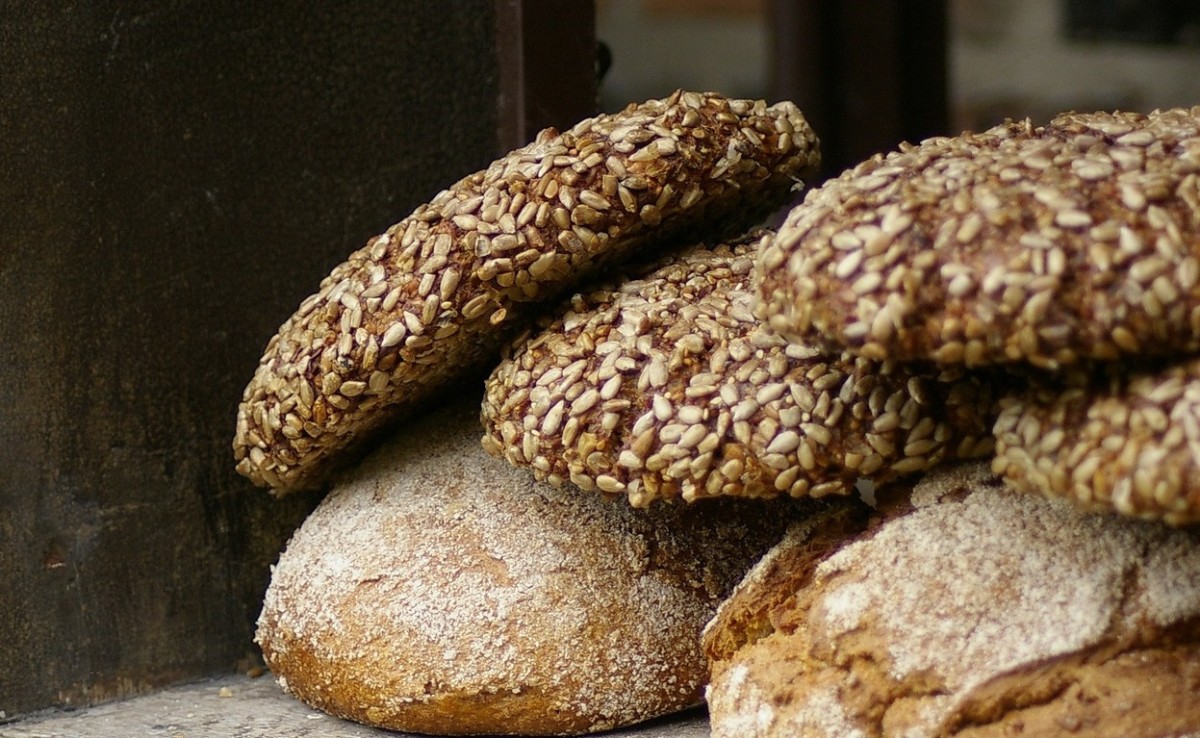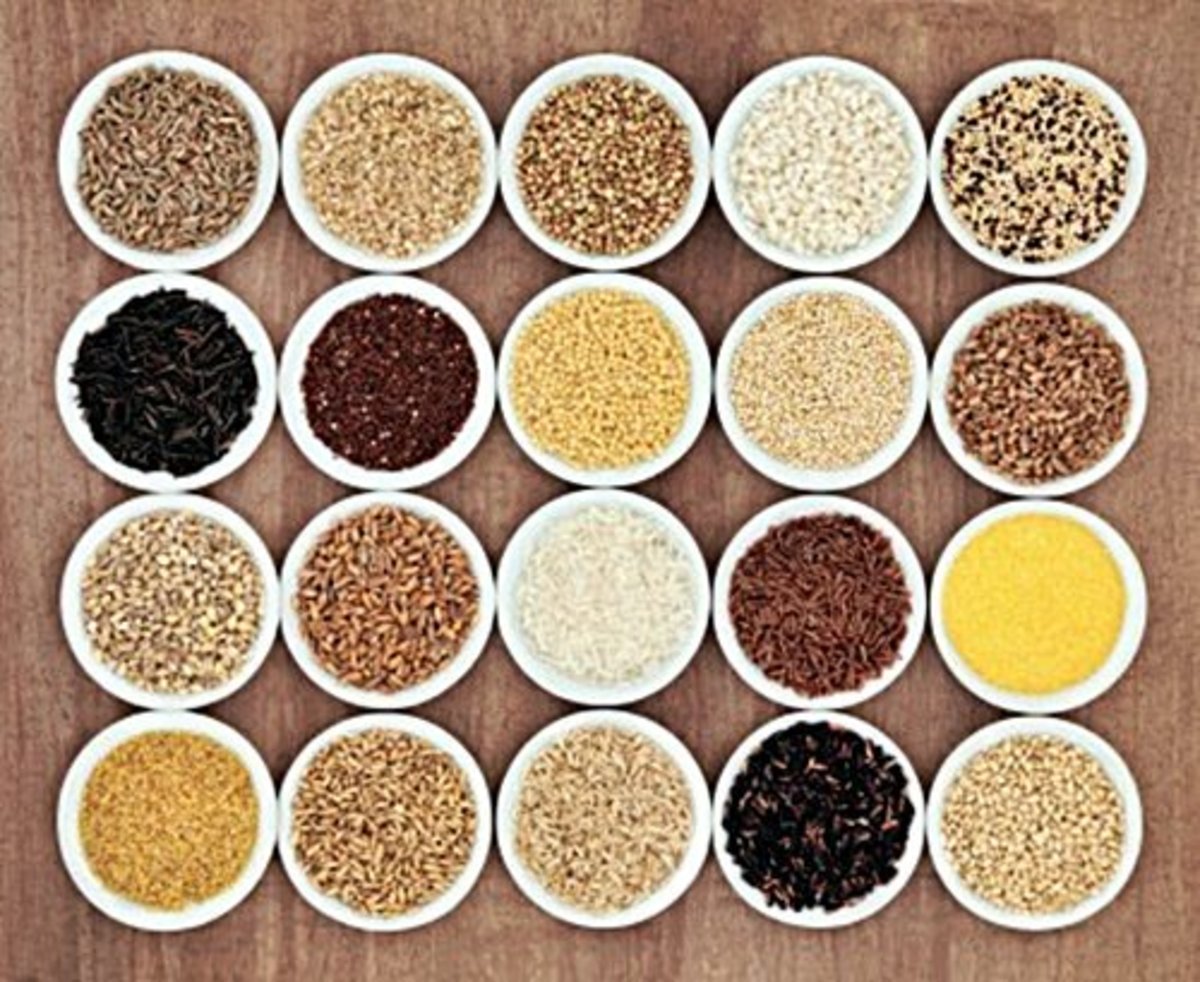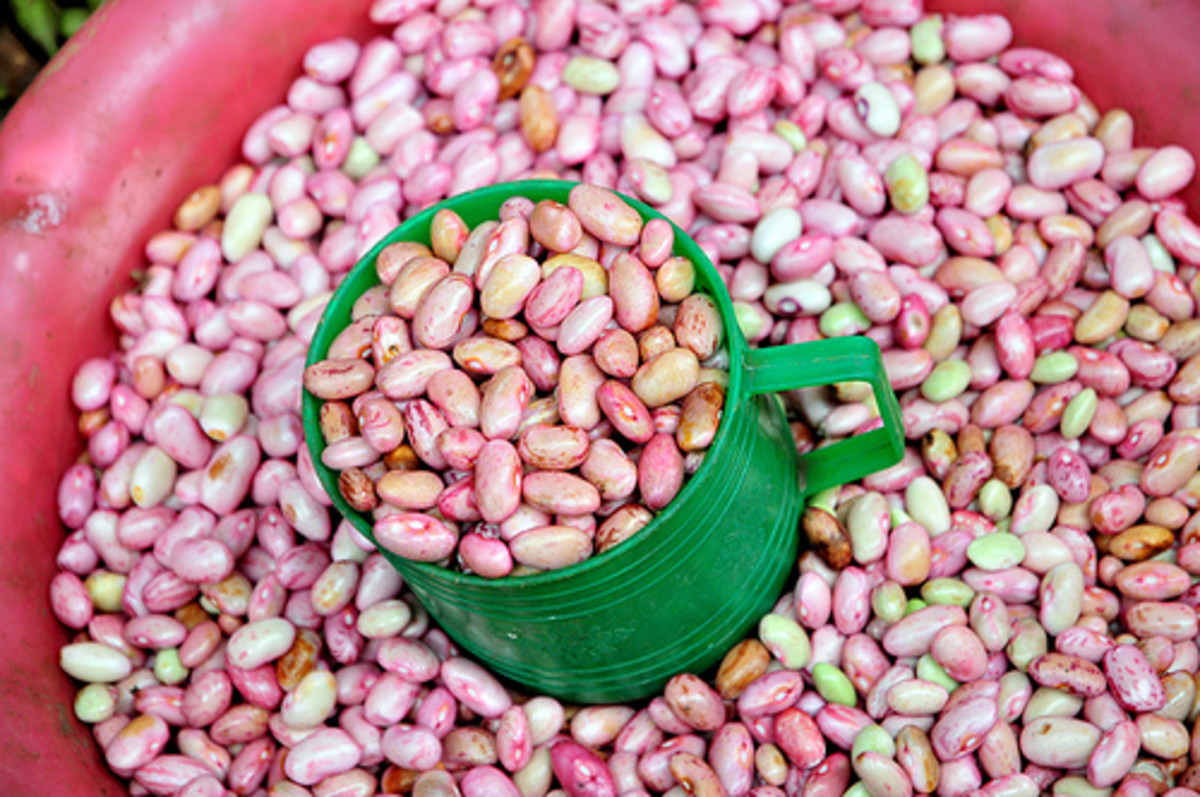Super Foods, Pomegranate, Whole Grains, Beans and Legumes
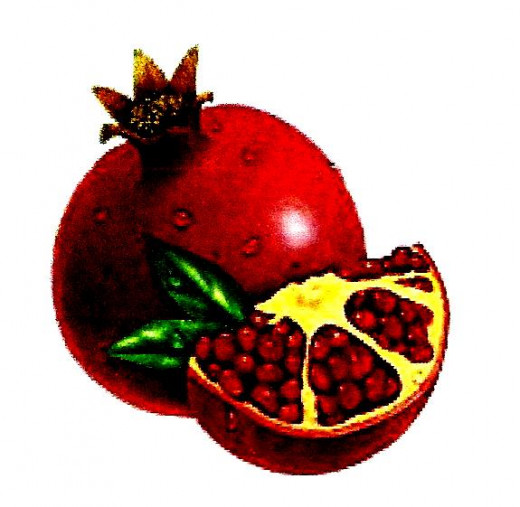
Pomegranate Poll
Are you more likely to eat or drink pomegranate juice?
Pomegranate
One of the best fruits you can eat although the seeds are frustrating to get out of this fruit is Pomegranate! Look at all the benefits.
Eat them or drink a glass of juice. One yields about ¾ cup of fruit seeds or ½ cup of juice and provides 72 calories. One pomegranate has about 130 – 150 calories. It is referred to as the ‘seeded apple’ but adds nutritional punch and is considered a super fruit. It’s suggest you drink ½ cup juice a day.
This is a great juice to mix with other juices! And remember only 1/2 cup a day of straight Pomegranate juice will do the trick!
- Rich in fiber, vitamin C and high in vitamin K and vitamin B5.
- Boosts natural defense against Alzheimer’s, arthritis and heart disease.
- Aids in repair of tissues, healing wounds and encourages circulation to skin to promote healing.
- Aids in combating macular degeneration and age related diseases.
- Aids expectant mothers to guard against brain injuries due to reduced oxygen and blood flow and provides important vitamins and encourages cell growth.
- A compound only in this fruit punicalagin benefits the heart and blood vessels.
- If given an ounce of juice each day for a year, blood pressure can lower by over 12 percent.
- Also 30 percent reduction in atherosclerotic paque. (Dr. Fuhrman)
- Inhibits breast cancer, prostate, colon and leukemia.
- Benefits of manganese which helps form bone structures and potassium that helps maintain cellular functions and balance fluid levels and helps with leg cramps.
- Helps with age spots, fine lines and wrinkles caused by sun damage.
- Has anti-bacterial properties that aid digestion and help fight off hemorrhoids, nausea, dysentery, intestinal parasites and diarrhea.
- Children who do not have a strong appetite can drink a glass of pomegranate to get an appetite stimulant.
- Will raise hemoglobin levels in your blood to help correct anemia.
- Helps to manage asthma, sore throat, cough and wheezing.
- Promotes blood circulation and helps relieve blood clots.
- Provides you with additional energy and helps losing weight.
- Helps pregnant women to have healthy babies.
Take a good look at the chart below for all the benefits of this wonderful fruit.
Pomegranate Benefits Chart
Regenerates cells
| Combats age related diseases
| Repairs damaged cells
| Lowers blood pressure
|
Lowers blood pressure
| Reduces wrinkles
| Promotes cell growth
| Boosts digestion
|
Boosts digestion
| Inhibits cancer growth
| Use as an appetite stimulant
| Regenerates cells
|
Raises hemoglobin levels
| Promotes blood circulation
| Provides energy
| Raises hemoblobin levels
|
Cleanses the body
| Helps losing weight
| Eliminates free radicals
| Cleanses the body
|
Soothes the stomach
| Improves blood flow
| Lowers cholesterol
| Soothes the stomach
|
Prevents plaque buildup
| Boosts defense - Alzheimer's
| Repairs tissues
| Prevents plaque buildup
|
Boosts immune against arthritis
| Boosts against heart disease
| Reduces platelet aggregation
| Defense against arthritis
|
Helps prevents heart attacks
| Helps prevents strokes
| High in manganese
| Helps prevents heart attacks
|
High in potassium
| Helps prevent leg cramps
| Helps relieve blood clots
| High in potassium
|
What super fruits, vegetables, spices and tea will you eat more of?
Whole Grains
Now we know why mom said eat your oatmeal!
Whole grains are essential for a healthy diet.
They are good sources of carbohydrates, vitamins and minerals and low in fat. Good sources of fiber and other important nutrients.
A few are: brown rice, popcorn, whole wheat bread, oats, corn, buckwheat in pancakes, whole rye, whole-grain barley and bulgur.
- Unrefined grains are grains that haven’t had their bran and germ removed by milling.
- Refined grains - strips out bran and germ to give a finer texture and extend shelf life.
- Refining airy flour is not nutritionally good; they have taken out almost all fiber and a good share of the vitamins and make the starch accessible to the body’s starch-digesting enzymes.
- Enriched grains, some nutrients have been lost during milling and are added back in, such as vitamins B, and maybe folic acid and iron.
- Good source of dietary fiber (fiber is classified as soluble or insoluble).
- Helps reduce blood cholesterol and lowers risk of heart disease.
- Has vitamin B’s, (thiamin, riboflavin, niacin and folate) folate acid, iron, magnesium, selenium.
- Whole grain means limited in saturated fat, trans fat, sodium and sugars.
- Does not contain partially hydrogenated oils.
- Good for diets and reducing weight, adds bulk to your diet.
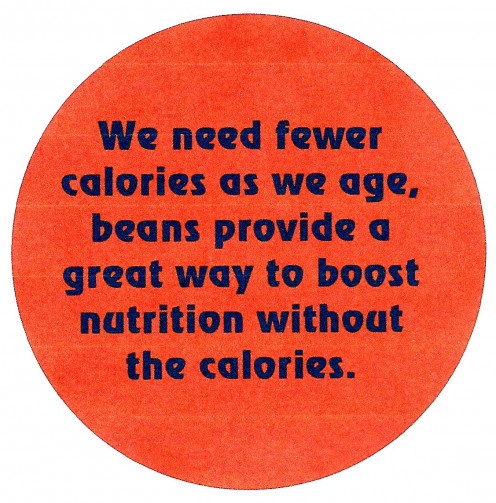
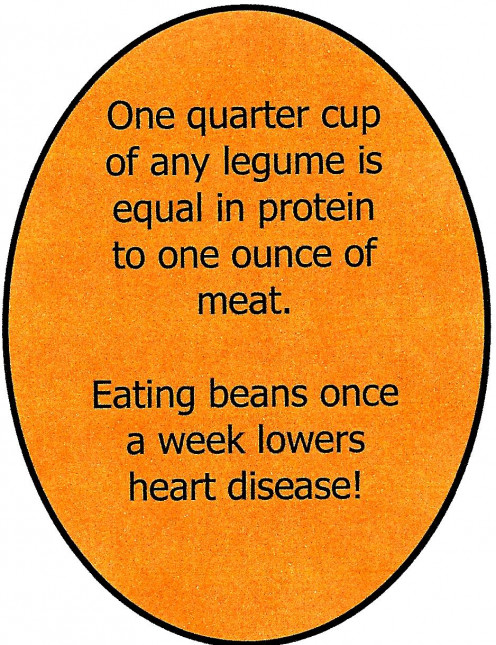
Beans, Split Peas, Legumes
Beans anyone? Good sources for alternatives for meat and good for your heart.
These are legumes, kidney beans, pinto beans, black beans, lima beans, black-eyes peas, garbanzo beans (chickpeas), split peas and lentils. Good sources of plant protein and iron and zinc. They are part of the vegetable group because of the dietary fiber, folate and potassium.
Whichever group you fall into meat eater or vegetarian - you should eat this.
Note green peas, green lima beans, green beans are not part of this group, and they are in the onions, lettuce, and celery and cabbage group.
- Rich in protein and high in fiber and low in fat.
- Contains no cholesterol, free of saturated fat and trans-fat and naturally low in fat.
- Good for our colon, lowers risk of cancer.
- Soaking bean for 12-24 hours helps increase digestibility and leaches out tannins and indigestible saccharides – making them less ‘musical’.
- Vitamins B, iron, folate, potassium and magnesium and phytonutrients.
- Lowers risk of diabetics with 1/2 cup, six days a week.
- Support for blood sugar balance and blood sugar regulation.
- Helps lower blood cholesterol levels.
- Decreases risk of coronary heart disease.
- Has twelve different vitamins, minerals and fiber.
- Good for people with certain food allergies and intolerances.
- No gluten in beans, substituting beans help other nutrients for people on restricted diets.
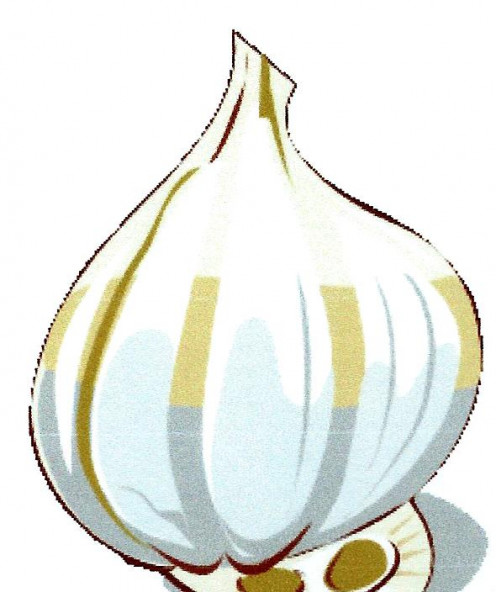
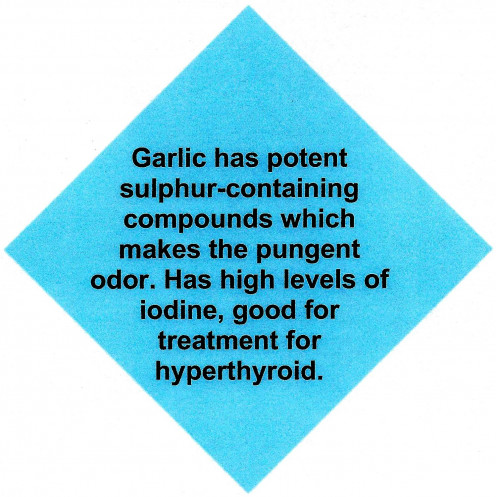
Garlic
It's smelly, strong pungent flavor, but an excellent herb and keeps us healthy!
Is an herb, and best known for flavoring our food. Over the years this herb has been used as a medicine to prevent or treat many diseases and conditions, also available in capsule form.
Effective in slowing the development of arteriosclerosis (hardening of the arteries) and reduce blood pressure.
- Can decrease the risk of stomach cancer.
- Reduces blood pressure.
- Consuming high amounts reduces number of tick bites, side affect- causes body and mouth odor.
- Low in calories and rich in vitamin C, B6 and manganese.
- Boosts the immune system and help with common illnesses, flu and the common cold.
- Helps reduce heart attacks and strokes.
- Aids in reducing blood pressure and helps soft tissue healing.
- Lowers LDL cholesterol.
- May help prevent Alzheimer’s and dementia.
- Contains antioxidants that support the body’s mechanisms against oxidative damage.
- May even help you live longer.
- High doses helps against organ damage from heavy metal toxicity.
- Appears to help with bone loss.

